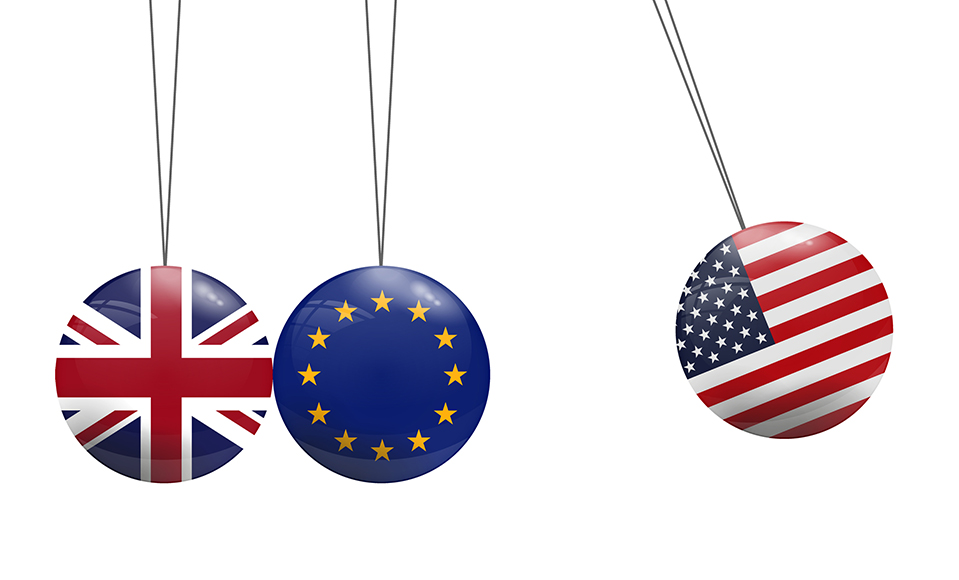Many in the UK will remember the scenes on television the morning of Friday, September 14, 2007. Savers were forming typically orderly British queues outside branches of Northern Rock bank, following news leaked the previous evening that the bank had received emergency funding from the Bank of England.
Whilst the then governor Mervyn King and Chancellor Alistair Darling took to the media channels seeking to reassure depositors that their money was safe, in fact it wasn’t.
At the time, only the first £2,000 of deposits were fully covered by the UK deposit guarantee scheme, along with 90% of the next £33,000. For a saver with £35,000 of deposits at the bank, they were therefore at risk of losing £3,300. And for deposits over £35,000, they were on their own.

If, in effect, all deposits are guaranteed – regardless of what the rulebook says – it would be better for regulators and governments to explicitly recognise that up front
Simon Samuels, Veritum
In response to the near collapse of Northern Rock, successive UK governments have progressively increased the level of deposit protection. Last month – 18 years later – the UK’s Prudential Regulation Authority announced that the 100% protection level will be increased further to £110,000 from the end of this year, 55 times that 2007 level.
The moves by the UK mirror those elsewhere around the world; in the US the deposit guarantee limit – first introduced in 1934 at $2,500 – is today 100 times higher at $250,000.
Banks pay to fund these schemes in the event they get called upon, and regulators comfort themselves that they’ve struck a good balance between keeping the system safe, yet reducing the risk of so-called ‘moral hazard’: the idea that incentives and discipline for and by bank management and depositors are distorted by the guarantee.
But the question is, does any of this matter?
Whilst there may be a clear rule stating what deposits are covered and what are not, in the real world the rules can – and do – get ignored. In 2007, whilst the rules stated that only the first £2,000 of deposits in Northern Rock were guaranteed, by the Monday after the Friday panic, the UK Chancellor had verbally guaranteed all deposits, regardless of size, and within two weeks had put in place a formal guarantee. Sixteen years later, faced with the collapse of Silicon Valley Bank (SVB) in March 2023, the US government similarly announced that the $250,000 deposit guarantee limit would be removed, and that all deposits were guaranteed.
The bank runs at Northern Rock and SVB happened at a time of relative financial stability; whilst the financial systems in 2007 and in 2023 were showing some signs of stress, there were no other bank failures at the time.
Financial fear
They were also small institutions. If regulators wouldn’t allow idiosyncratic (as opposed to systemic) failures from small (as opposed to important) banks to result in depositors losing money, then when will they? And if the conclusion from the behaviour of regulators and governments is that, in effect, all deposits are safe, then what’s the point of having a limit on the level of deposit guarantees? If it came to it, would a government really allow the depositors of Lloyds Bank or of Bank of America to simply lose money?
In considering what role a so called ‘haircutting’ of deposits could play, regulators are no doubt scared by the experience of Cyprus. In 2013, facing a financial crisis, the EU, ECB and IMF forced Cyprus to write down a significant proportion of deposits over the EU guarantee limit of €100,000. The impact was severe; the economy went into a tailspin and for many years afterwards angry depositors chose not to pay their mortgages as a way of clawing back their lost deposits, so called ‘voluntary defaults’.
If, in effect, all deposits are guaranteed – regardless of what the rulebook says – it would be better for regulators and governments to explicitly recognise that up front. That would significantly reduce the chances of a bank run – assuming the government was seen as credit worthy. And having done so, they should simply charge banks for that full guarantee rather than charging them for a partial guarantee yet remaining on the hook for more. The current constructive ambiguity is a fiction that isn’t fair to the taxpayers it relies on.
Simon Samuels is the founder of Veritum Partners, a consulting firm that specialises in advising financial service companies on their interaction with investors and analysts. He is a former No.1 ranked sell-side bank analyst.




